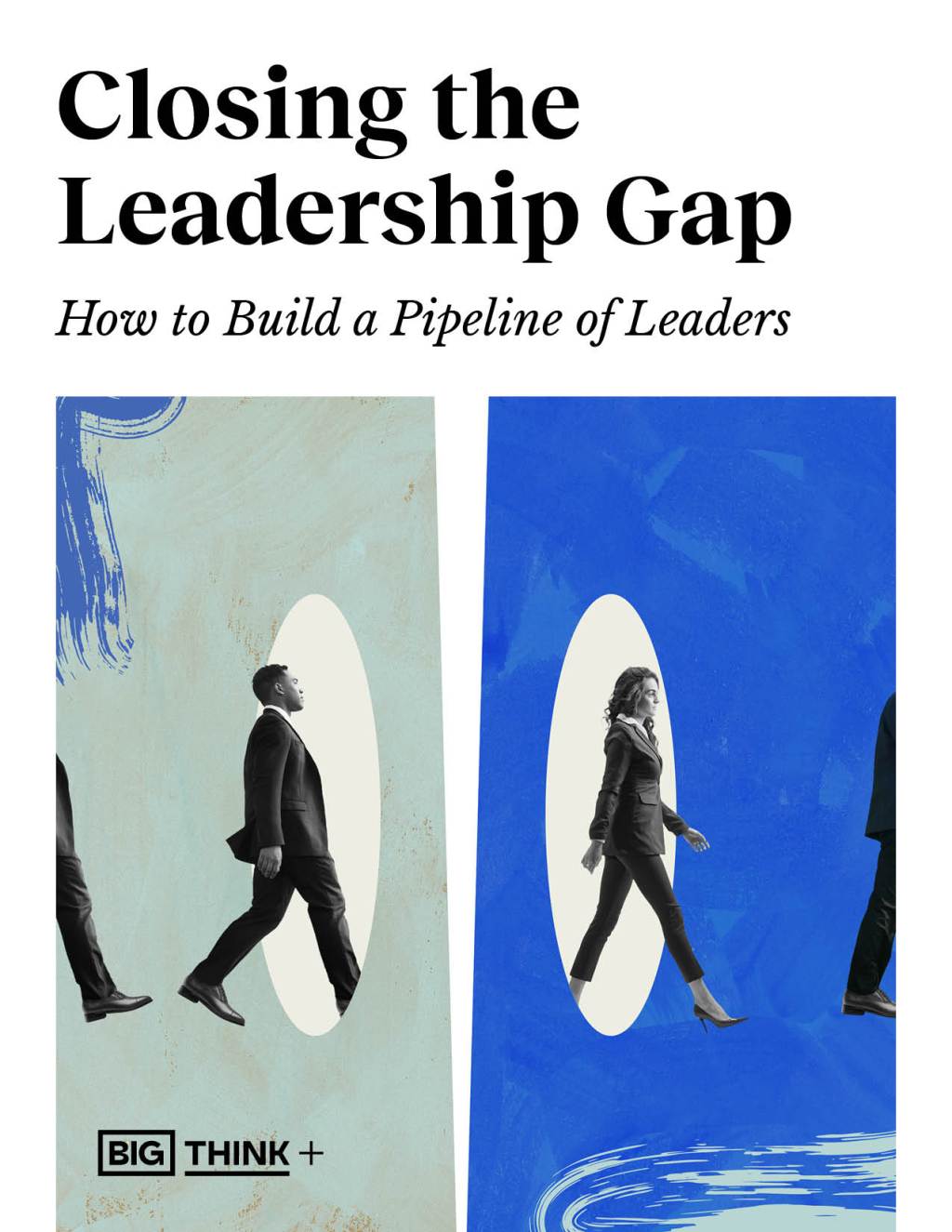Executive coaching: 5 things you need to know

Executive coaching helps leaders develop the strategies, habits, and attitudes they need to successfully lead others.
Over an average of six months, an executive coach challenges leaders to create measurable goals and develop plans for reaching them in incremental steps. Some coaches work with leaders in-person at their workplace, while others offer support in virtual meetings.
This type of coaching is not considered training or mentoring, and the goal is not to “fix” problem employees. Instead, a coach works one-on-one with individuals to strengthen their leadership skills and improve their effectiveness. Coaching services are tailored to the participant and designed to facilitate personal growth.
The benefits of executive coaching
A study by MetrixGlobal found that executive coaching yielded a 529% ROI – an outstanding financial return for an investment in soft skills development. And the benefits proved to extend far beyond the C-suite, leading to increased employee retention across the organization. Beyond the bottom line, executive coaching can help leaders develop the following capabilities.
Better emotional intelligence
Executive coaching often helps improve emotional intelligence, a critical tool for leaders. As leaders develop their EQ, it becomes easier for them to identify personal triggers that cause distress, regulate their emotions, recognize the emotional states of their employees, and foster positive working relationships.
Guided role play with a coach is one example of how a leader might learn to respectfully discuss concerns with direct reports, share constructive feedback, and resolve conflict.
Increased resilience
According to Kelly McGonigal, author of The Upside of Stress, the way leaders respond to crises is contagious. As leaders work on improving their resilience, they have an opportunity to exemplify to all members of the organization what an appropriate response to a high-pressure situation looks like. To increase resilience, a coach might have a leader work on developing a bank of positive emotions, such as gratitude, to fall back on when challenges arise.
More self-awareness
Executive coaches are skilled at asking tough questions that get leaders to look inward. It’s common to engage in a lot of self-evaluation throughout the process, but not simply to look for flaws. Once leaders come to believe in their own knowledge, abilities, and values, they’re able to tap into their personal power.
As social psychologist Amy Cuddy explains, leaders who learn to harness their personal power become more confident and optimistic. Here’s a clip from Cuddy’s Big Think+ lesson on the limitless potential of power over the self.
Stronger communication skills
Even the most charismatic and competent leaders can be stymied by a lack of interpersonal communication skills. Ineffective communication in the workplace can damage morale, prevent team cohesion, and even lead to accidents.
One-on-one coaching helps leaders prevent these issues. In fact, in a study by the International Coaching Federation, 70% of participants reported improved communication skills in the workplace after coaching.
Flexible mindset
Leonard Mlodinow – theoretical physicist and author of Elastic: Flexible Thinking in a Time of Change – says our cognitive filters act as the security guards of the mind. In other words, when the mind is too inflexible, leaders can miss out on opportunities to innovate and evolve. It’s important that they learn to interrogate old patterns of thought and open up to the possibility of change and growth.
Greater motivation
There is great power in defining personal goals. Ethnographer and leadership expert Simon Sinek says that successful people and businesses are driven by a sense of purpose. Leaders must learn how to come back to the “why” – an ongoing process of being honest about what is and isn’t important. Executive coaches can help them gain motivation and remain centered on their purpose.
Improved reaction to failure
Executive coaching helps leaders identify their self-limiting behaviors and gives them strategies to improve their perception of failure. Leaders can become less intimidated by failure by embracing a growth mindset and promoting a learning culture within their organization.
Tim Harford, economist and author of Adapt, discusses how to become a “successful failure.” To put this into practice, leaders can focus on separating themselves from their mistakes, experimenting when failure is survivable, and being prepared to embrace feedback with an open mind.
5 things to know about executive coaching
All too often, organizations develop tunnel-vision and prioritize present productivity over building future capacity. Executive coaching is a forward-thinking investment in professional development, so that growth and innovation isn’t stifled. When considering executive coaching for your organization, here are five key things to know.
Executive coaching isn’t a quick fix
We’ve discussed all that executive coaching is and what it aims to achieve, but it’s also important to understand what executive coaches can’t do. Executive coaching is not a magic pill and the results won’t be immediate. The coaching process is time-limited and not an end in itself. It’s meant to provide a blueprint for success which involves continuous learning and improvement. This is one reason why it’s important to choose the right candidates for coaching.
How to choose candidates for coaching
The traits of an ideal candidate for executive coaching aren’t necessarily tied to experience or title. Executive coaches can be hired to work with individuals who have shown potential but lack the confidence to take on a leadership role, as well as those who are already high-level managers but have grown stagnant in their role.
Coaching cannot help anyone become a better leader if they aren’t willing to grow or change.
Working with a coach is a deeply personal journey, so it’s important to choose candidates who are ready. When selecting individuals for coaching, look for characteristics like openness to learn and a track record of continuous improvement. Executive coaching services work best for employees who are resolved to invest in the process with an open mind and in good faith. Coaching cannot help anyone become a better leader if they aren’t willing to grow or change.
Executive coaches aren’t therapists
Executive coaching isn’t a form of counseling or therapy, which tend to be more retrospective. Because many executive coaches come from fields such as business, law, or sports, they may not be equipped to deal with barriers to success that are rooted in mental health. In certain participants, without addressing these underlying challenges, the benefits of executive coaching will be limited at best.
The risks of executive coaching
In the worst-case scenario, an executive coach can end up doing more harm than good. Learning and development professionals should remain aware that because a hired coach will be guiding the practice of leadership, this individual holds the power to significantly influence organizational culture.
An executive coach holds the power to significantly influence organizational culture.
An executive coach’s work will eventually impact all levels of an organization. Although this ripple effect is typically positive, it also has the potential to lead to negative results over time. The Harvard Business Review describes a scenario in which the CEO of an athletic shoe company hired a friend to coach his volatile COO. When it appeared that the COO’s improvement was leading to positive business outcomes, the coach was asked to begin applying his methods throughout the entire organization.
But the COO’s perceived success was largely due to the shoe industry recovering, and the coach’s methods were actually ineffective on their own. The coach’s program ended up damaging the organizational culture through a series of suggested personnel changes that were accepted, no questions asked. Fortunately, there are several ways to thoroughly vet executive coaches and their methods.
Finding the right coach
Executive coaches come from diverse experiential and educational backgrounds. But whatever their background, the best executive coaches understand the psychological factors that both empower and inhibit people. They’re experienced in helping individuals overcome those barriers to success. They offer case studies and client testimonials that demonstrate their effectiveness.
Before committing to an executive coach, arrange for an early meeting between the coach and candidate to see if it’s a good match. The coaching process involves a series of honest conversations in which the employee will receive constructive feedback intended to push them out of their comfort zone. Because this process is highly personal, mutual respect and a strong rapport are essential between the coach and candidate.
By partnering with executive coaches, learning and development teams can empower high-potential individuals to achieve greater success and become leaders of transformation throughout the entire organization.





